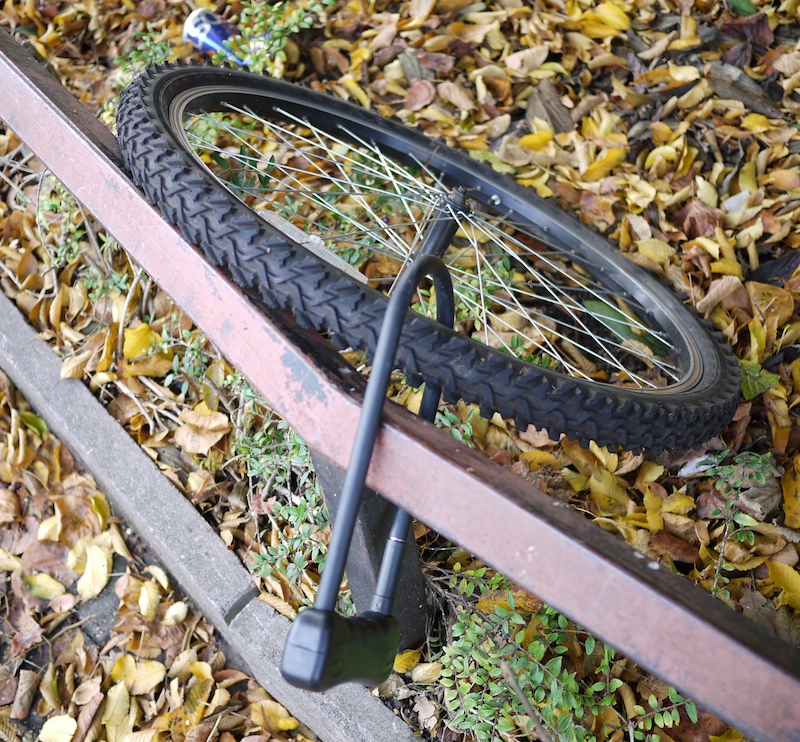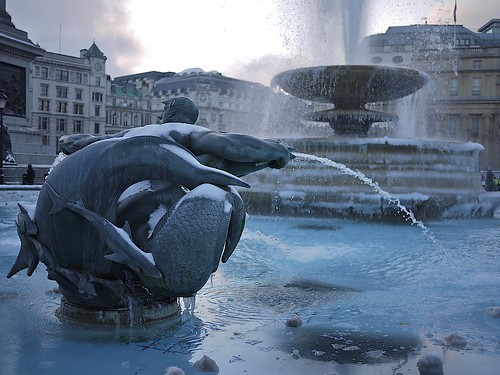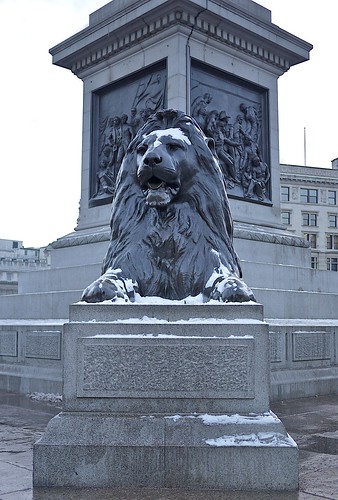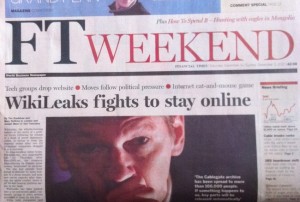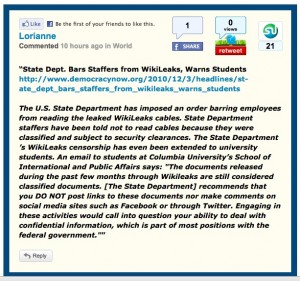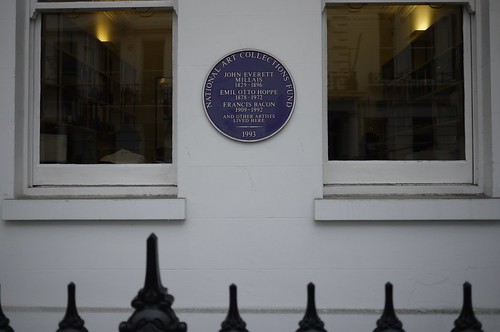One thing that has been oddly downplayed amid the rage, indignation, etc. triggered by Cablegate is the actual content of the cables themselves. I’ve read only a fraction of them — mostly the ones published by the Guardian — but what comes across mostly is the evidence they provide of the quiet professionalism of US diplomats. These public servants are seen doing their job of listening conscientiously to what they hear in the countries to which they are assigned, and relaying it back to their masters in Washington. Sometimes, it’s clear that they are speaking unpalatable truths to power, because what they find on the ground is not what Washington wants to hear. Or what their informants wish to hear, either.
Take for example the way in which Mervyn King, Governor of the Bank of England, found himself playing a minor role in the cables emanating from the London Embassy. In a conversation with the US Ambassador prior to the UK election, King had professed himself underwhelmed by David Cameron and George Osborne. They had, he told the Ambassador, a “tendency to think about issues only in terms of politics, and how they might affect Tory electorability”.
Many former diplomats have pooh-poohed the revelations in the cables saying that there was nothing in them that was new. The clear implication was that most of this stuff was commonplace in diplomatic circles. Well, maybe it was, but that misses the point entirely. They may have known this stuff but we — i.e. the schmucks who are paying their salaries — didn’t. And sometimes that really matters. For example, I’ve been pissed off for years at the fact that the biggest supporters of Al Qaeda are the Saudis. I’m even more pissed off to learn not only that the US State Department also knows that but that the King of that corrupt and dysfunctional state wants the US to bomb Iran on his behalf.
Sometimes the cables have revealed occasions when the diplomats on the ground have been telling the truth but their Washington masters have been engaging in what looks like lying. Consider the case of US Military operations in Yemen. Here is an excerpt from the transcript of the State Department daily briefing for December 15, 2009, given by P.J. Crowley, who is an Assistant Secretary of State.
QUESTION: On the conflict in Yemen, Houthis say that U.S. warplanes have launched airstrikes in northern Yemen. Is the U.S. involved in any military operations in Yemen?
MR. CROWLEY: No.
QUESTION: No?
MR. CROWLEY: But we – those kinds of reports keep cropping up. We do not have a military role in this conflict.
QUESTION: Okay. Thank you.
And now here’s an excerpt from a January 2010 cable describing a meeting between Gen. David Petraeus and President Ali Abdullah Saleh of Yemen, in which they discuss U.S. airstrikes.
President Obama has approved providing U.S. intelligence in support of ROYG [Republic of Yemen government] ground operations against AQAP targets, General Petraeus informed Saleh. Saleh reacted coolly, however, to the General’s proposal to place USG [U.S. government] personnel inside the area of operations armed with real-time, direct feed intelligence from U.S. ISR [intelligence, surveillance, reconnaissance] platforms overhead. “You cannot enter the operations area and you must stay in the joint operations center,” Saleh responded. Any U.S. casualties in strikes against AQAP would harm future efforts, Saleh asserted. Saleh did not have any objection, however, to General Petraeus’ proposal to move away from the use of cruise missiles and instead have U.S. fixed-wing bombers circle outside Yemeni territory, “out of sight,” and engage AQAP [Al Qaeda in the Arabian Peninsula] targets when actionable intelligence became available. Saleh lamented the use of cruise missiles that are “not very accurate” and welcomed the use of aircraft-deployed precision-guided bombs instead. “We’ll continue saying the bombs are ours, not yours,” Saleh said, prompting Deputy Prime Minister Alimi to joke that he had just “lied” by telling Parliament that the bombs in Arhab, Abyan, and Shebwa were American-made but deployed by the ROYG.
According to Salon,
The three strikes mentioned at the end there each occurred in December 2009, the month before the cable was written. The Dec. 17 Abyan attack killed 55 people, 41 one of whom were civilians, including 21 children Amnesty International later reported. Amnesty had also suspected that a U.S. cruise missile was used in the attack because of images of debris found at the scene. This new cable seems to bear out that suspicion.
It’s possible, given that the cable wasn’t sent until January, that Mr Crowley’s replies — given in December — might have been provided in good faith, because the Pentagon hadn’t shared information about what it was up to in Yemen. (After all, one of the defining characteristics of the George W. Bush presidency was the way State was sidelined by the Pentagon.) But what the cable does conclusively show is that the US administration has been very economical with the truth in relation to what it’s doing in Yemen.
Another thing that comes across in the cables is their authors’ obvious belief in American exceptionalism; they do genuinely appear to believe that America is exceptional in its commitment to democracy and human rights, and seem confident that American power is generally applied on the side of justice. In a useful round-up piece in the New York Times, Stephen Erlanger, quoted a well-known French journalist, who had the same thought:
Renaud Girard, a respected reporter for the center-right Le Figaro, said that he was impressed by the generally high quality of the American diplomatic corps. “What is most fascinating is that we see no cynicism in U.S. diplomacy,” he said. “They really believe in human rights in Africa and China and Russia and Asia. They really believe in democracy and human rights. People accuse the Americans of double standards all the time. But it’s not true here. If anything, the diplomats are almost naïve, and I don’t think these leaks will jeopardize the United States. Most will see the diplomats as honest, sincere and not so cynical.”
“This is charming”, says the Economist.
Most Americans don’t grasp the extent to which their country is considered throughout the world a bullying, opportunistic, imperialist power. Mr Girard sounds almost surprised by the “almost naïve” sincerity of American diplomats’ commitment to democracy and human rights. And I think he is right that the intelligence, good humour, and benevolent intentions on display in the cables redounds to the benefit of the American foreign service’s reputation.
The problem is that much of the rest of the world doesn’t see the US in quite that way. They tend to Churchill’s view: that the United States “can always be trusted to do the right thing — once it has exhausted all the other alternatives”.
But, argues the Economist,
Americans by and large trust their military, their foreign service, and even their spy agencies basically because all of them are full of Americans. If the good patriots keeping the world safe for democracy feel they need to keep certain things secret, then they need to keep certain things secret. To splash those secrets all over the internet is simply to interfere with America’s attempt to carry its noble burden, to perform its urgent and necessary task, to make the world a little less safe for democracy. What kind of person would do that?
All of which explains, I suppose, why so many Americans think that WikiLeaks is akin to a terrorist organisation. Sadly, it also explains why they are getting so many things wrong.
LATER: Gideon Rachman, writing in the FT, adds a few more things the cables have told us:
1. The sheer bleakness of America’s view of Russia – and this despite all the happy talk of improved relations and a “reset”.
2. Hillary Clinton’s concern about America’s reliance on Chinese purchases of US Treasuries. In conversation with the aforesaid Rudd, she uses the line “how do you get tough with your banker?”
3. Suggestions that American troops have been embedded with Pakistani troops in the fight in the tribal areas.
4. The delicious confirmation that Britain’s Prince Andrew is, indeed, a complete oaf.

